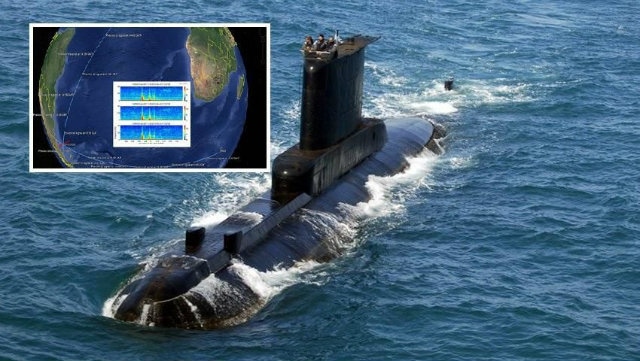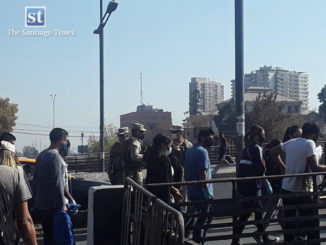
BUENOS AIRES – Water entered the snorkel of the Argentine submarine ARA San Juan, causing its battery to short-circuit before it went missing November 15, a navy spokesman has said as hope dwindles among some families of the 44-member crew.
The ARA San Juan had only a seven-day oxygen supply when it lost contact, and a sudden noise was detected that the navy says could have been the implosion of the vessel. Ships with rescue equipment from countries including the United States and Russia have rushed to join the search.
Before its disappearance, the submarine had been ordered back to its Mar del Plata base after it reported water had entered the vessel through its snorkel, causing a battery to short-circuit, navy spokesman Enrique Balbi told a news conference earlier this week.

“They had to isolate the battery and continue to sail underwater toward Mar del Plata, using another battery,” Balbi said on Monday.
After contact with ARA San Juan was lost, the Vienna-based Comprehensive Nuclear Test-Ban Treaty Organization, an international body that runs a global network of listening posts designed to check for secret atomic blasts, detected a noise the navy said could have been the submarine’s implosion.
The search for the 65-meter diesel-electric submarine is concentrated in an area some 430 km off Argentina’s southern coast. The effort includes ships and planes manned by 4,000 personnel from 13 countries, including Brazil, Chile, Uruguay, Peru and England.
Russian deep-sea craft joins international search for Argentine submarine
Among the crew’s family members, fissures started appearing Monday between those who refuse to give up hope and those who say it is time to accept that their loved ones will not come back alive.
Some relatives have said they are focusing on the lack of physical evidence of an implosion and the possibility that the submarine might have risen close enough to the ocean surface to replenish its oxygen supply after it went missing.—MercoPress



